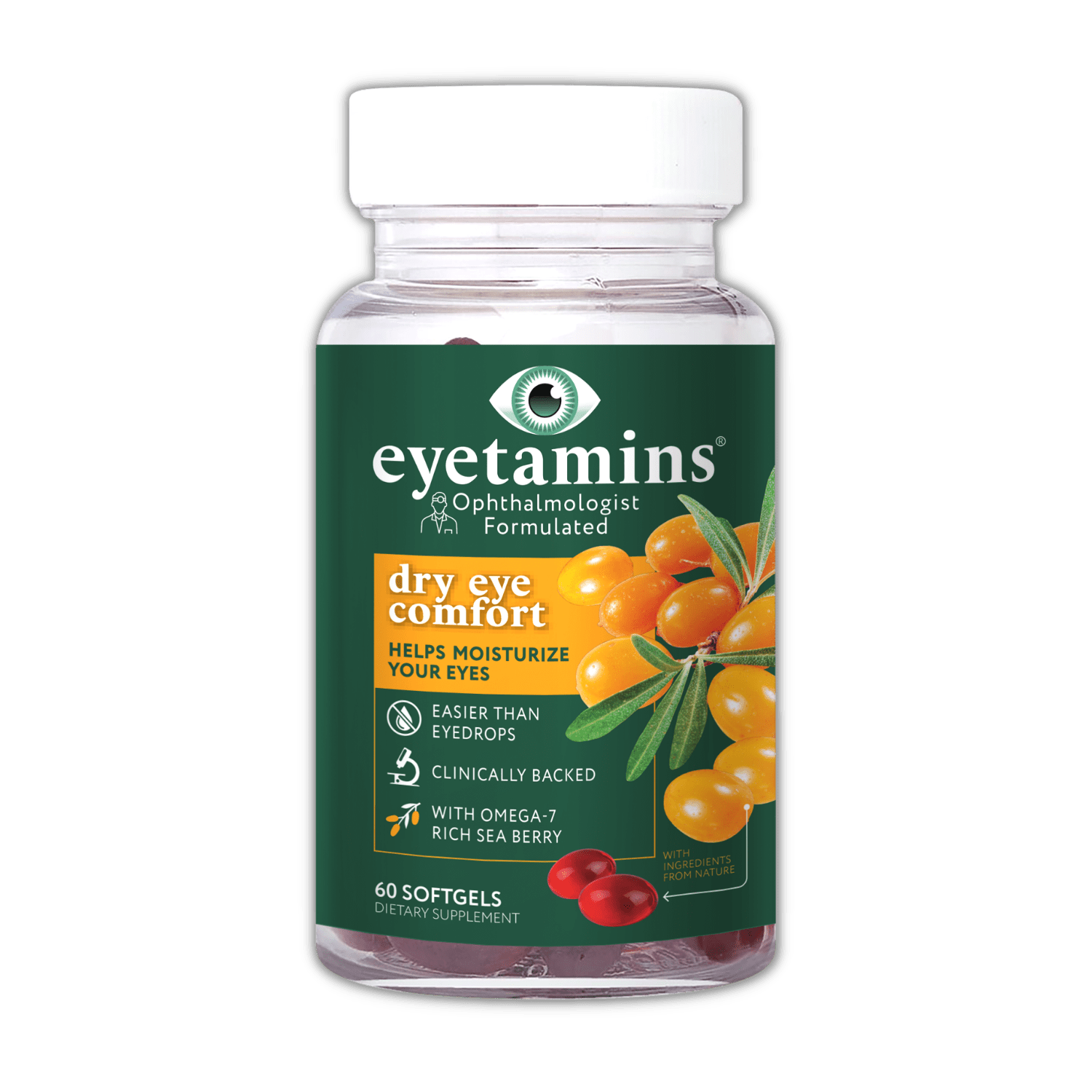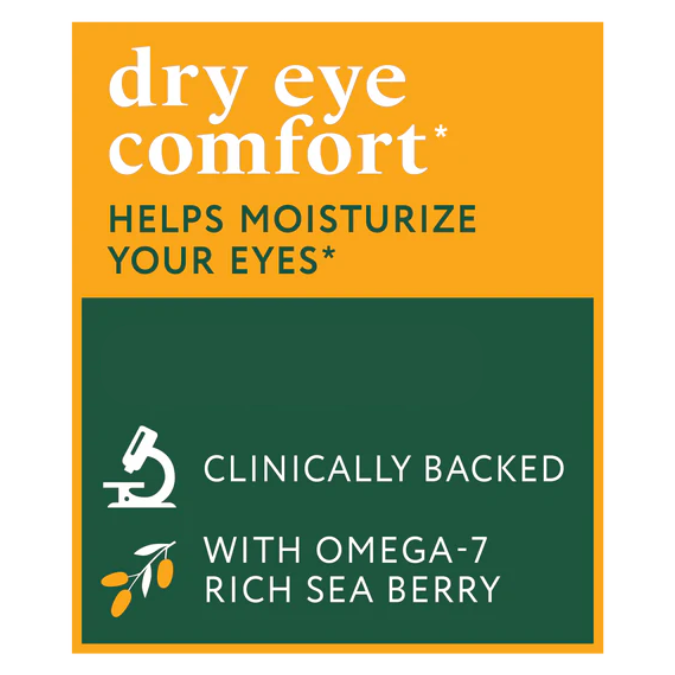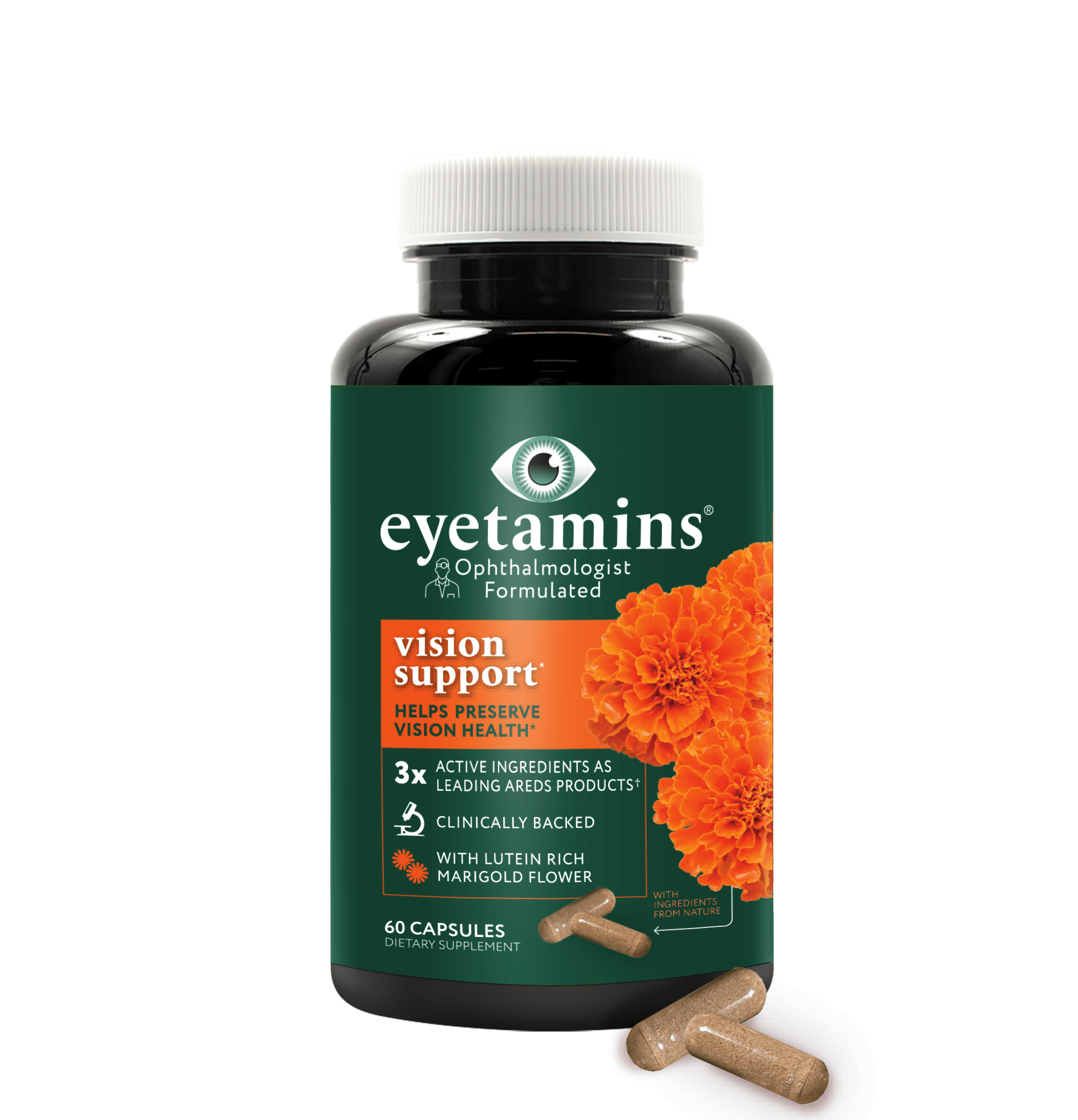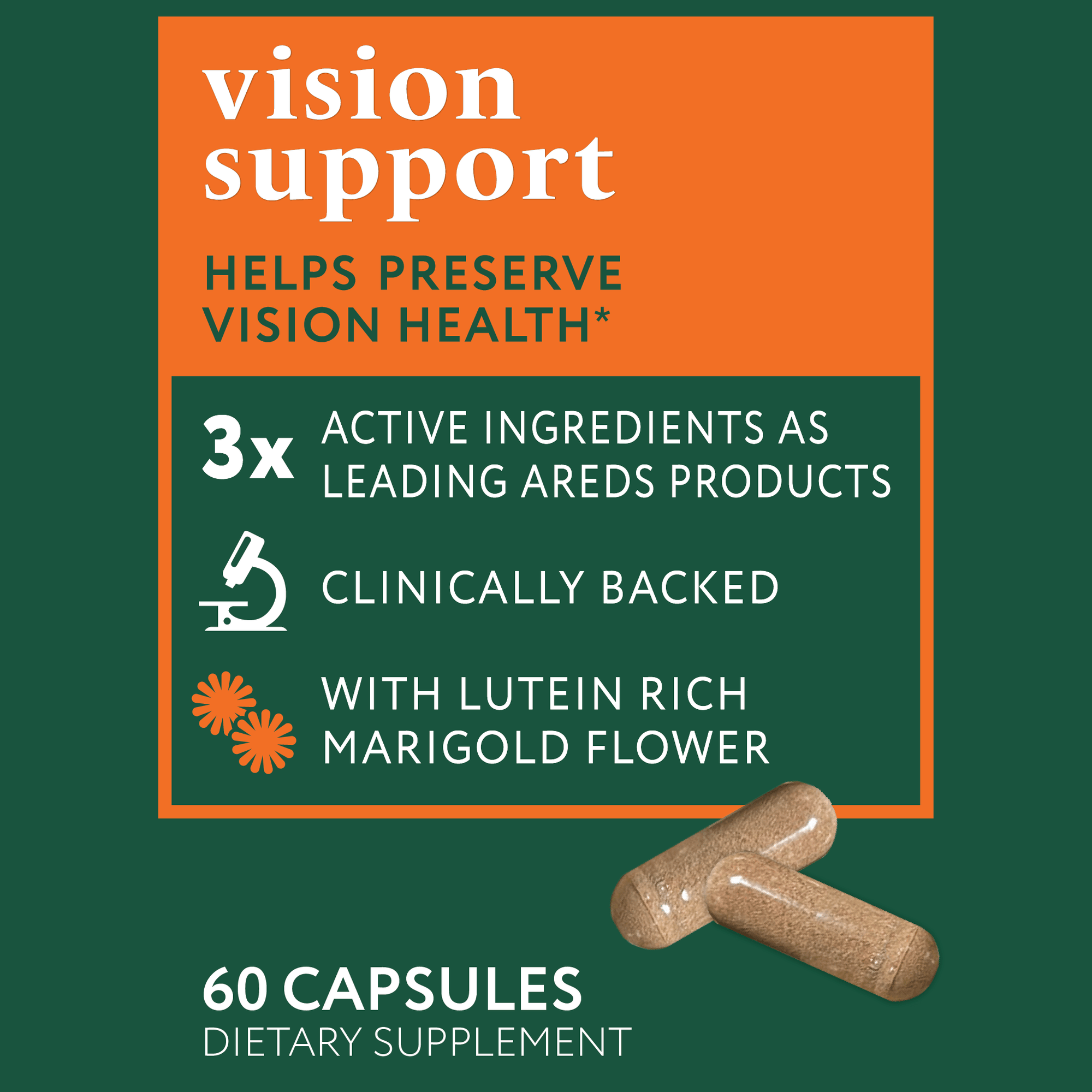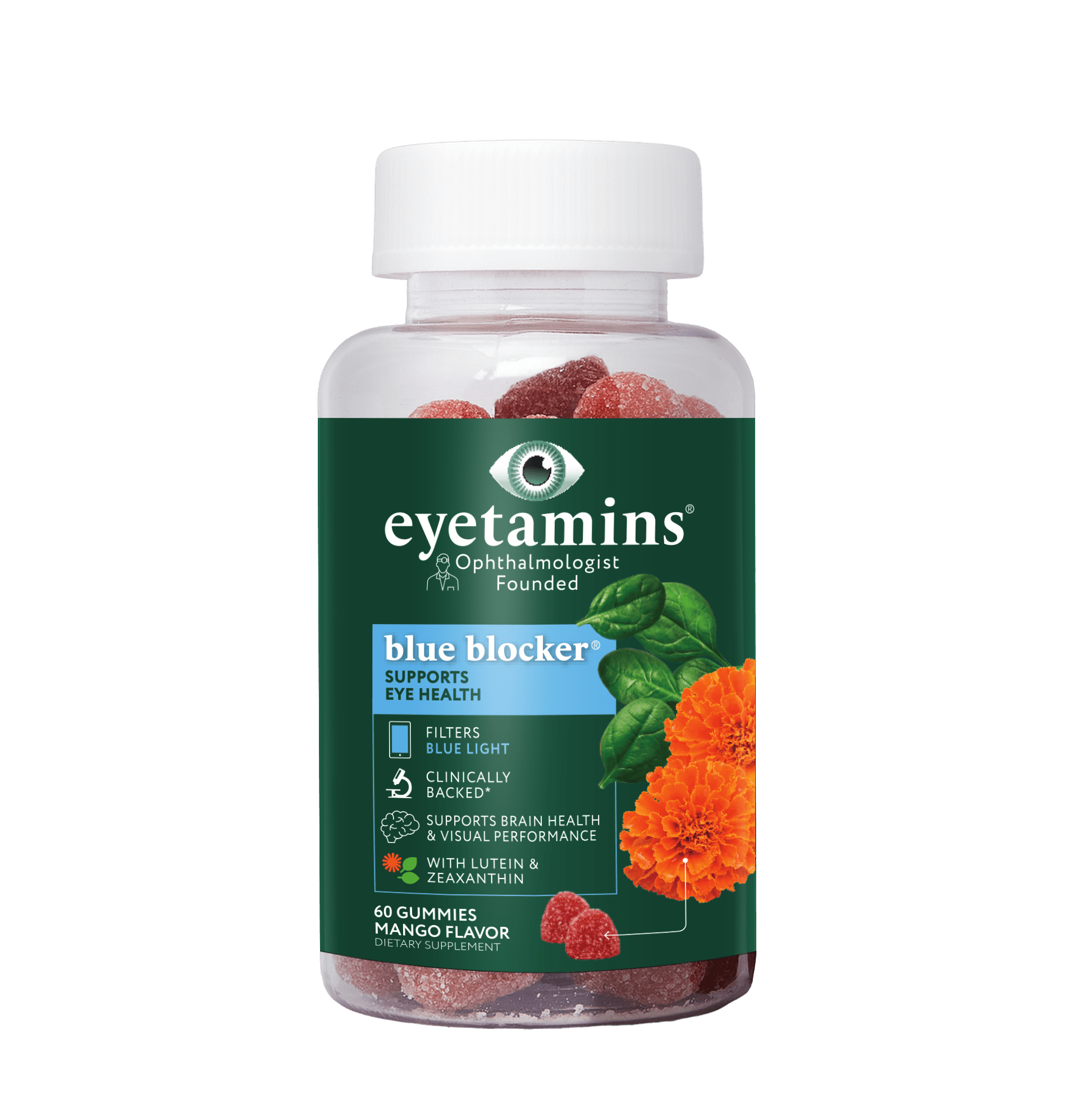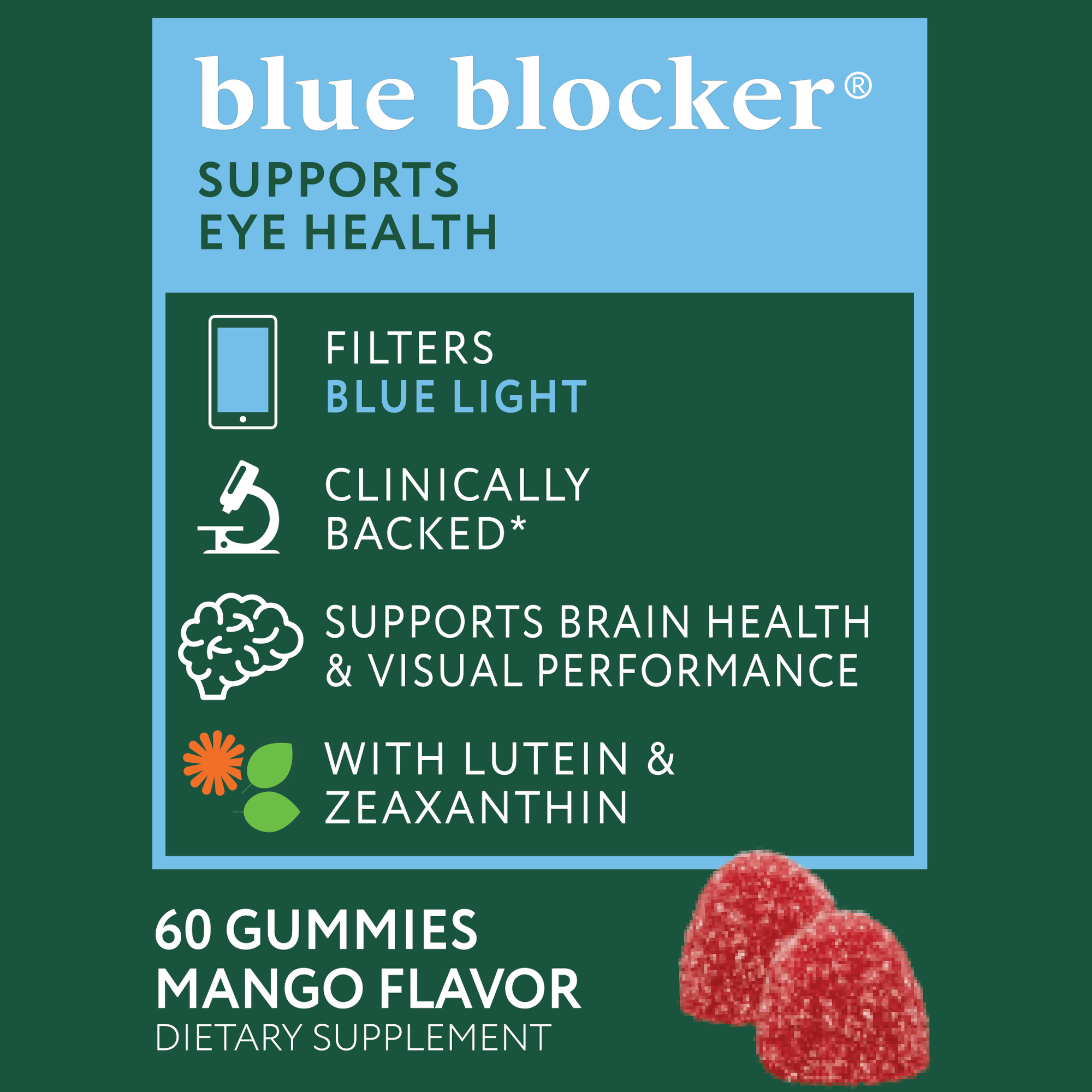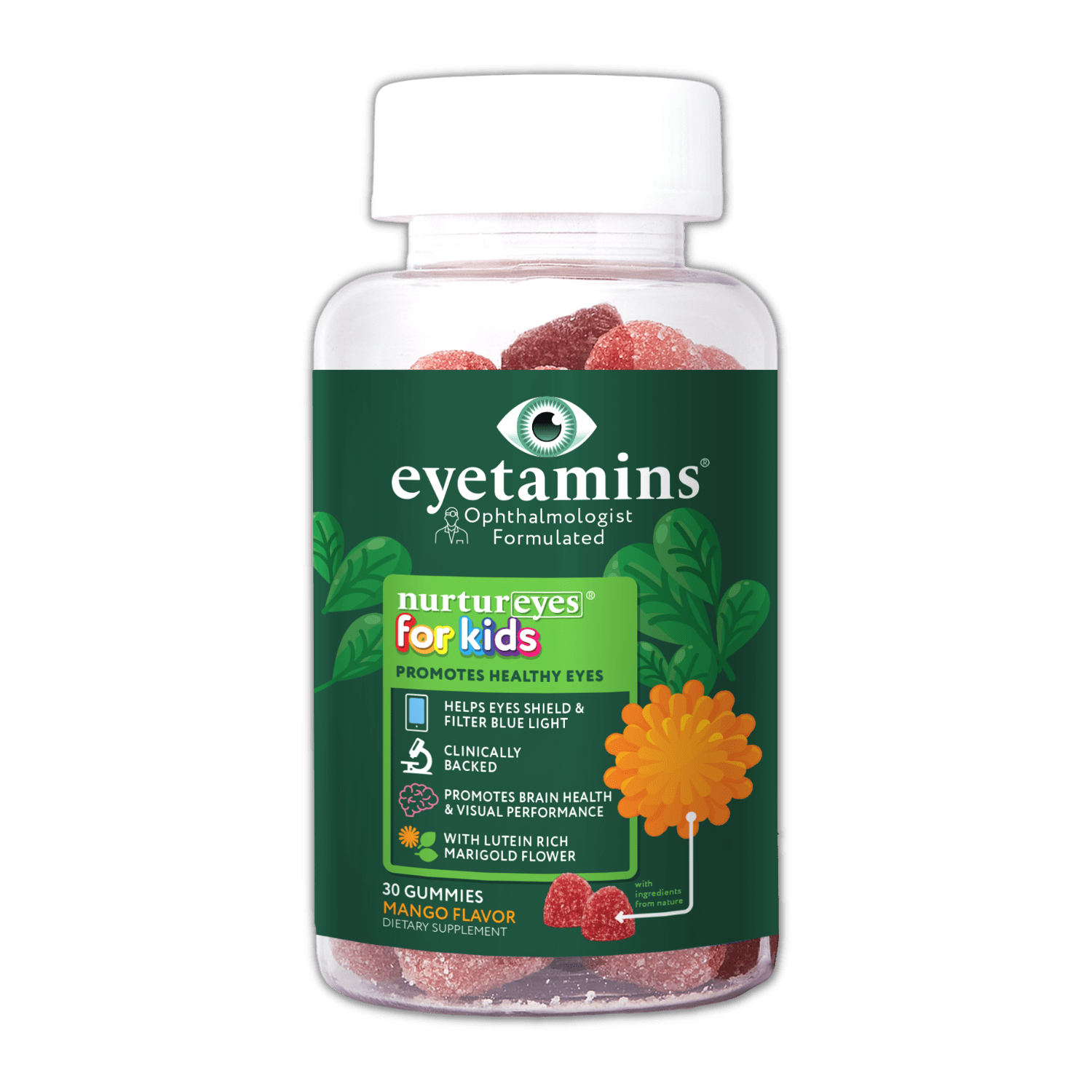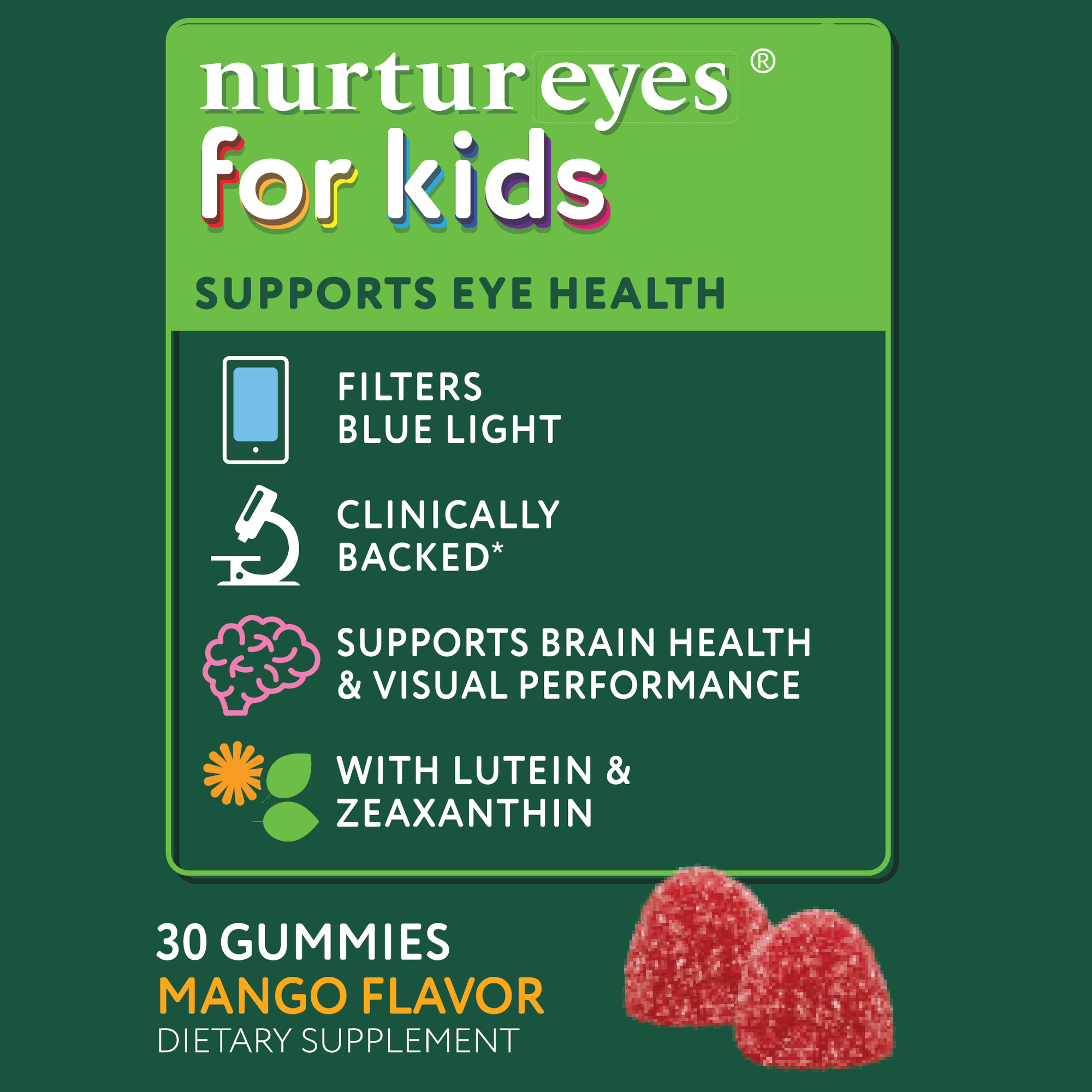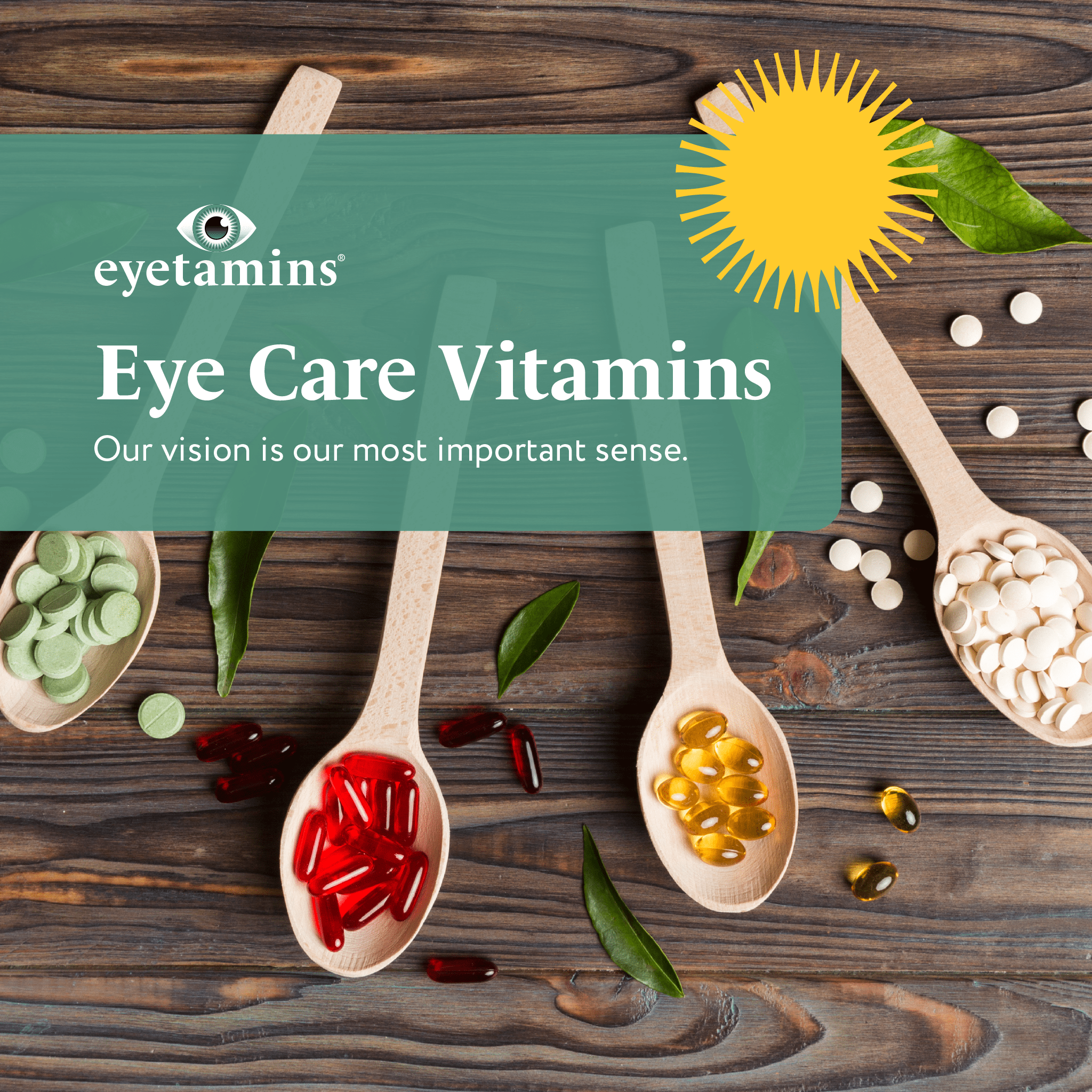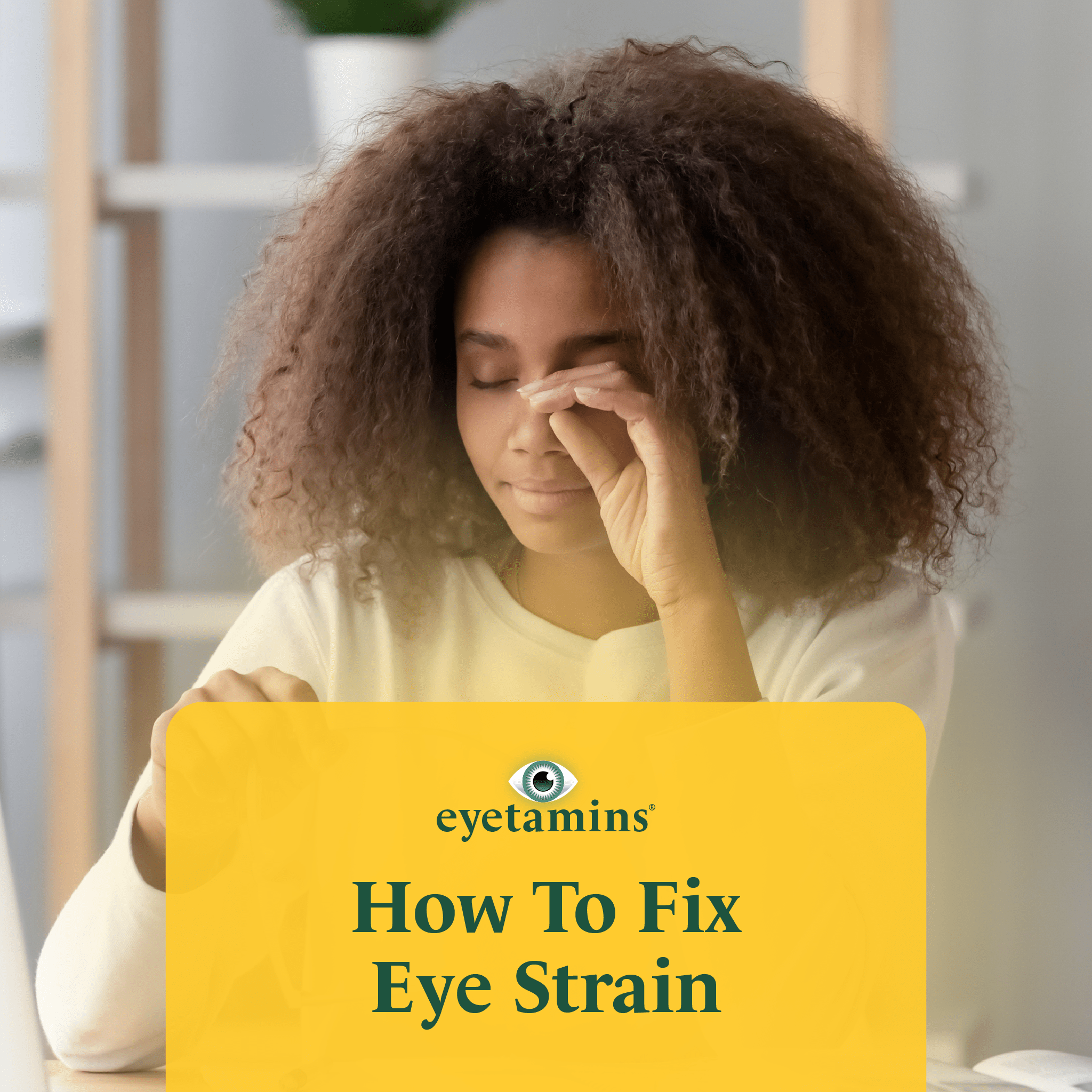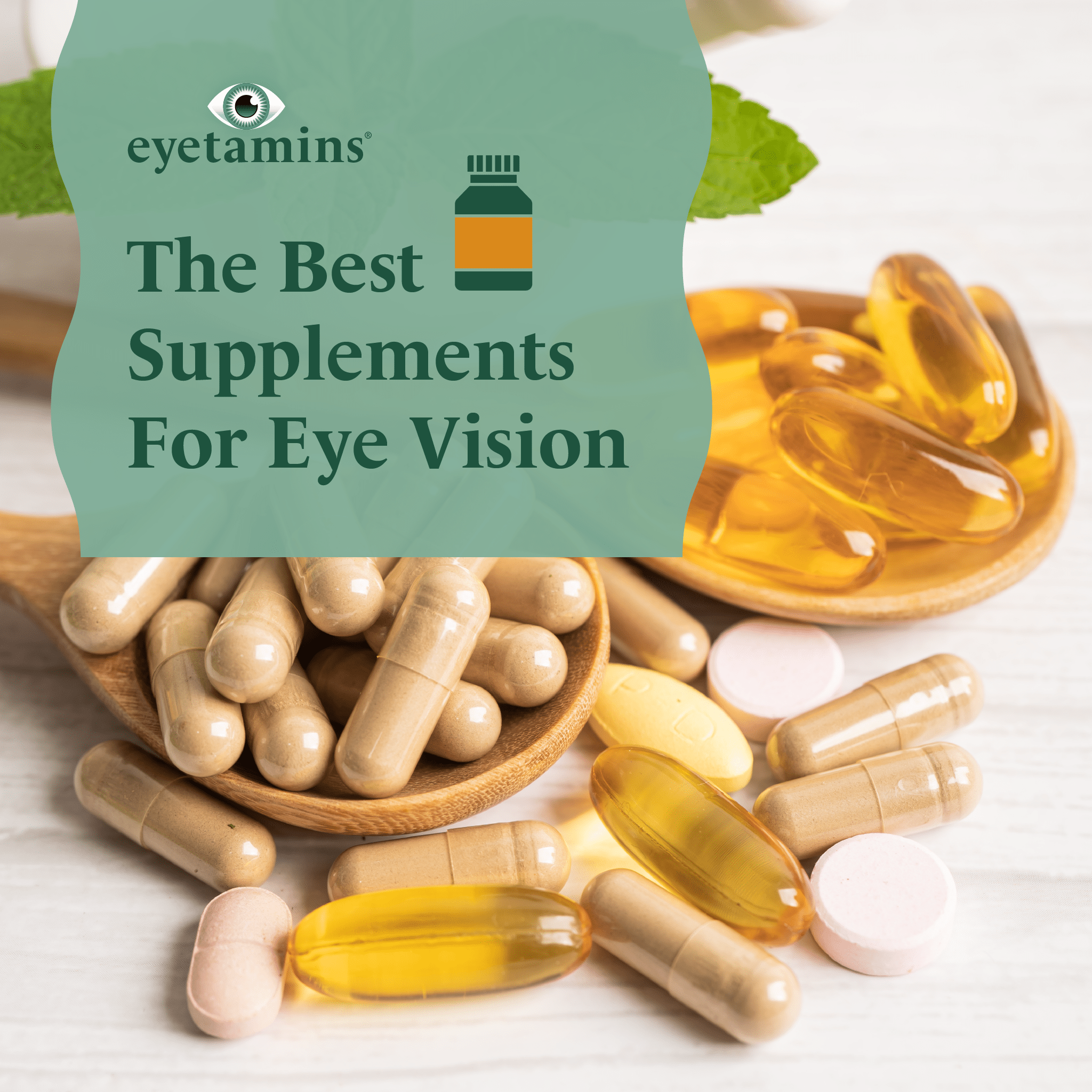· By Dr. Kaushal M. Kulkarni, M.D.
Best Age to Start Taking Eye Vitamins
Good vision is vital for just about everything you do and you’ll want to keep it for many years to come. However, it may come as a surprise to you to learn that approximately 12 million people 40 years and over in the United States have vision impairment. So, when is the best age to start taking eye vitamins?
Research indicates that proper nutrition is vital in helping maintain and preserve eye health for both men and women. As part of a healthy diet, which you should all be following, choose food that is rich in antioxidants, like Vitamins A and C, lots of leafy green vegetables and fish. Lots of foods - especially fatty fish, like salmon contain essential omega-3 fatty acids, which are important to the health of the macula, the part of the eye responsible for central vision.
Yet diet can only get you so far. In fact, most people do not get the recommended amounts of important nutrients for diet alone. Eyetamins are specifically designed to provide a balanced combination of nutrients dedicated to the health of your eyes.
Vitamins for Babies
The truth is vitamins are valuable at every age. You can begin reaping the benefits from day one. It is recommended that all children aged 6 months to 5 years are given vitamin supplements containing vitamins A,C and D every day. Alongside improving their eyesight, this is essential to support healthy brain function and development.

Babies who are having more than 500 ml (about a pint) of infant formula each day should not be given vitamin supplements. This is due to the fact that their formula is fortified with vitamins, A, C, D and other nutrients. On the other hand, babies who are being breastfed should be given a daily vitamin D supplement from birth, whether or not you are taking a supplement containing vitamin D yourself.
Vitamins for Children
Vitamins for children like nutureyes® also have many benefits for children, especially between the ages of 3 and 10. As children grow and change from year to year (boy do they grow up fast), so do their eyes and vision. The visual pathways in the brain responsible for tracking, depth perception and convergence (focusing on close stuff) continue to develop throughout one's childhood.
Many problems like amblyopia, commonly known as lazy eye, can begin during early childhood. It is of vital importance to detect and treat amblyopia as early as possible before the condition becomes irreversible, ideally before the age of 10.
Since young children often struggle to communicate, they might not be able to tell us what is actually happening. As a result, you should be aware of the following signs:
- Squinting
- Holding reading material very close to their face
- Complaining about blurry vision
- Losing Their place while reading
- Avoiding reading
- Turning head to their side
- Having a short attention span
If you suspect that your child has an eye issue, then take them to an ophthalmologist.
Vitamins for Teenagers
From the age of 11 to 18, school demands increase on children and teenagers. This all requires increased visual processing for reading, writing and working on the computer. Indeed, even sports require strong vision. Without the necessary levels of eye health to facilitate this activity, a child’s performance at school might slip. Do not let it happen.
As we explored above, the proper nutrients to maintain vision health at this age are: vitamins A, E and C, zinc, anthocyanins, as well as omega-3 fatty acids, DHA and EPA. These are essential for your teenagers, especially since many of them are exposed to blue light from excessive phone or computer usage.
To ward off the harmful effects of blue light, Lutein and Zeaxanthin are two pigment molecules within the carotenoid family. In short, these are essential for retinal health. These antioxidant molecules are found in high concentrations in the center of the retina, the macula (that we talked about earlier). They absorb high-energy blue light and ultraviolet light, by acting as a natural blue light filter. This prevents damage.
Vitamins for Adults
Unfortunately, for most of us, that ship has sailed and the blissful memories of youth are, well, memories. But that doesn’t necessarily mean that everything will go south. At any and every age it is smart to take vitamins. Before we go into this, there is one important piece of advice.
That is, your doctor is - and ought to be - your first port of call for health information. Irrespective of dosage, supplements are not a cure for health problems of a substitute for medication. Always check with your doctor before beginning to take any dietary supplement, including those for your eyes.
Here are the minimum recommended daily amounts of each vitamin.
- Vitamin C: men - 90 mg, women - 70 mg (85 mg during pregnancy and 120 mg when breast-feeding)
- Vitamin E: 15 mg for teens and adults (15 mg for women during pregnancy and 19 mg when breast feeding)
- Zinc: men - 11 mg; women - 8 mg (11 mg during pregnancy and 12 mg when breast feeding).
- Omega-3 essential fatty acids (including flaxseed oil): None; but for cardiovascular benefits, the American Heart Association recommends approximately 1,000 mg daily.
There is some evidence that taking a specific combination of antioxidant vitamins can help slow down the worsening of age-related macular degeneration. Indeed, as per the research, the potential gains from taking these vitamins and minerals show that they reduce the risk of AMD by a significant amount. If you are diagnosed with AMD, then taking a supplement may reduce the risk of it getting worse by about 25%.
Frequently Asked Questions (FAQ’s)
1. Do vitamins for eyes really work?
For most people, vitamins for eyes are necessary to support good eye health. Together with a healthy, balanced diet, this is evidence to suggest that vitamins result in improved eye health.
2. Do eye supplements improve vision?
Results have shown that high doses of antioxidants, such as vitamin A, C and E, improve vision marginally. They are better at guarding against degenerative diseases.
3. What age can you start taking vitamins?
Any age! They have good benefits for all ages.
4. What is a good vitamin for dry eyes?
Omega fatty acids have been shown to be beneficial for dry eyes. In particular, a balanced ratio of omega fatty acids can be specifically found in our dry eye formula.
Conclusion
So now that we’ve covered why vitamins for eye health can be great for kids as well as adults, it’s time to start taking better care of your eyes. Whether it’s eye strain from excessive exposure to blue light or dry eyes from not enough moisture, our products are here to help you get your eye health back on track.


